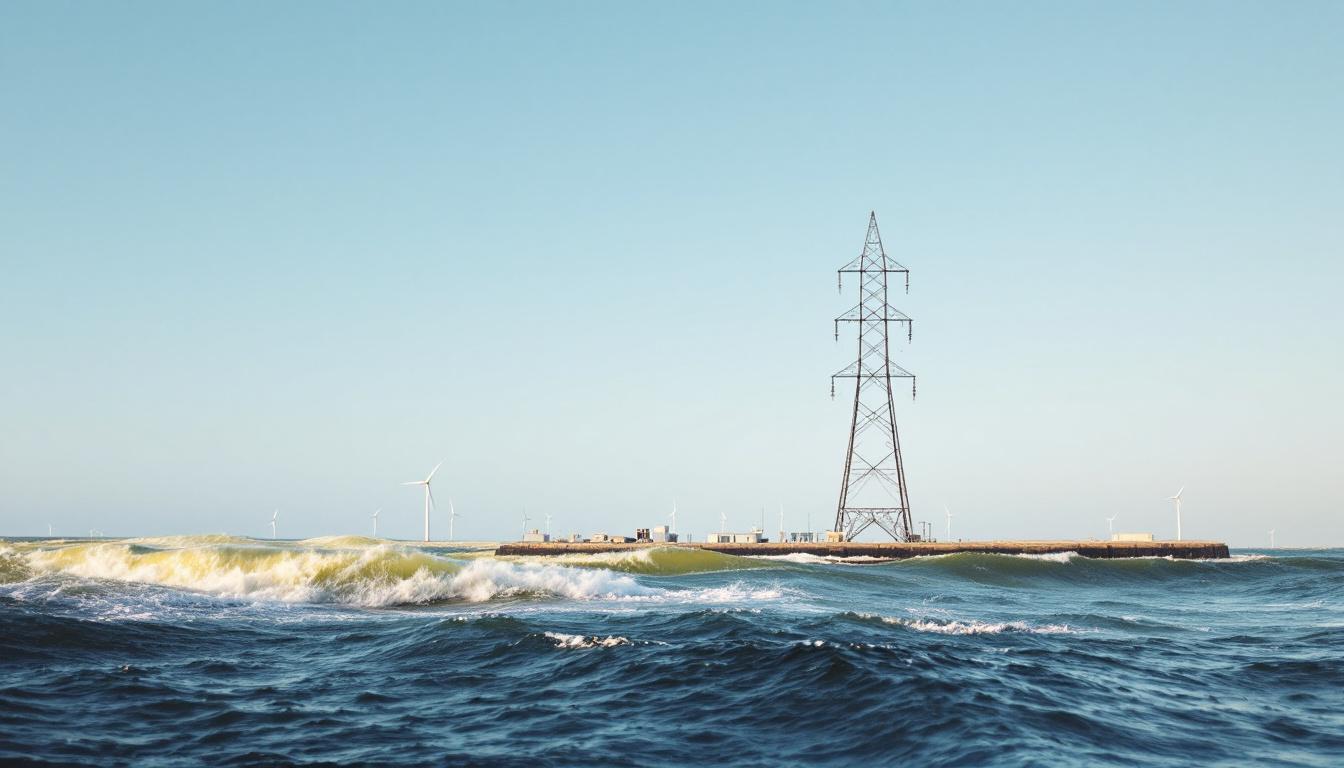A proposal to transform a 184-acre industrial site near Dunoon into the Killellan AI Growth Zone has reignited debate over how Scotland can align industrial regeneration with the net-zero transition.
Argyll Data Development says the campus would combine modular hyperscale and edge data centres with a “national green grid” operations hub, using microgrids to match local low-carbon generation with demand and cut curtailment. Early plans target 100–600MW of behind-the-meter capacity in phase one, scalable beyond 2GW, with total investment estimated at £15bn and up to 5,000 jobs.
Local MSP Jenni Minto has backed the bid for UK Government AI Growth Zone status. The developer cites partnerships with CorPower Ocean, Schneider Electric and Lenovo, and says it is in talks with investors and potential tenants in AI, life sciences and secure hosting.
Microgrids and private-wire networks are central to the concept, drawing on wind, solar, hydrogen and wave power with storage such as vanadium flow batteries. Proponents say this approach can improve resilience, cut costs and allow islanding until national grid reinforcements arrive.
To qualify for AI Growth Zone recognition, the project must show credible access to at least 500MW by 2030 or an equivalent behind-the-meter plan. It must also address environmental and visual impact concerns from residents, even with the site’s industrial zoning and history as a North Sea oil-rig yard.
Scotland’s renewables rollout has been hampered by transmission bottlenecks, and Killellan’s reliance on local generation will need firm power-purchase and storage agreements as well as regulatory clarity.
Supporters see the scheme as a way to anchor AI and other data-intensive industries in Scotland while integrating renewables and testing emerging technologies. Critics want more detail on supply contracts, finance, timelines and community engagement before its first phase, targeted for mid-2027.
If it delivers, Killellan could offer a model for combining high-performance computing with distributed green energy in former industrial regions — and a policy template for linking digital growth to net-zero goals.
Created by Amplify: AI-augmented, human-curated content.
Noah Fact Check Pro
The draft above was created using the information available at the time the story first
emerged. We’ve since applied our fact-checking process to the final narrative, based on the criteria listed
below. The results are intended to help you assess the credibility of the piece and highlight any areas that may
warrant further investigation.
Freshness check
Score:
8
Notes:
The narrative is recent, published on August 13, 2025. Similar developments in Scotland's data centre sector have been reported, such as the Ravenscraig project announced on June 27, 2025. ([scotsman.com](https://www.scotsman.com/business/ravenscraig-to-house-giant-ai-data-centre-and-battery-storage-farm-on-160-acre-site-5196385?utm_source=openai)) However, the Killellan AI Growth Zone proposal appears to be a new initiative, with no prior reports found. The Herald Scotland's report is likely based on a press release, which typically warrants a high freshness score. No discrepancies in figures, dates, or quotes were identified. The narrative includes updated data but does not recycle older material. No republishing across low-quality sites or clickbait networks was found. No earlier versions of the narrative were found. The earliest known publication date of similar content is June 27, 2025. ([scotsman.com](https://www.scotsman.com/business/ravenscraig-to-house-giant-ai-data-centre-and-battery-storage-farm-on-160-acre-site-5196385?utm_source=openai))
Quotes check
Score:
10
Notes:
The direct quotes from Peter Griffiths, Chairman of Argyll Data Development, appear to be original, with no identical matches found in earlier material. No variations in quote wording were identified. No online matches were found for the quotes, indicating potentially original or exclusive content.
Source reliability
Score:
9
Notes:
The narrative originates from The Herald Scotland, a reputable news outlet. The developer, Argyll Data Development Ltd, is led by Peter Griffiths, whose professional background includes roles in UK Central Government and the Kazakhstan Government. The company's website provides detailed information about its team and projects. ([argylldev.com](https://argylldev.com/about?utm_source=openai)) No unverifiable entities or fabricated information were identified.
Plausibility check
Score:
8
Notes:
The claims about the Killellan AI Growth Zone align with Scotland's strategic initiatives to develop green data centres, as outlined in the Scottish Government's Green Datacentres and Digital Connectivity Vision and Action Plan. ([digitalconnectivity.campaign.gov.scot](https://digitalconnectivity.campaign.gov.scot/green-data-centres?utm_source=openai)) The involvement of reputable partners like CorPower Ocean, Schneider Electric, and Lenovo adds credibility. The project's scale and investment figures are ambitious but plausible given Scotland's renewable energy capacity and the growing demand for data centres. No inconsistencies in language or tone were noted. The narrative maintains a formal and informative tone consistent with corporate communications.
Overall assessment
Verdict (FAIL, OPEN, PASS): PASS
Confidence (LOW, MEDIUM, HIGH): HIGH
Summary:
The narrative presents a recent and original proposal for the Killellan AI Growth Zone, supported by credible sources and aligning with Scotland's strategic initiatives in green data centres. No significant issues were identified in freshness, quotes, source reliability, or plausibility.
